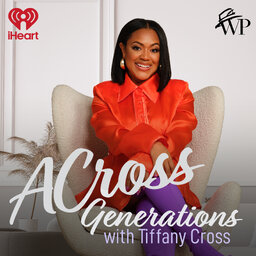Unpacking Beauty Myths: Black Women, Culture, and Confidence with Harriet Cole & Jasmine Carthon
In this episode of Across Generations, host Tiffany Cross dives into a candid discussion on evolving beauty standards with esteemed guests Harriet Cole, a lifestyle expert and author, and Jasmine Carthon, a trailblazing plus-size model and community advocate. Together, they explore the historical and cultural shifts in how beauty is perceived, the impact of legislation like the Crown Act, and the challenges faced by Black women in industries shaped by Eurocentric ideals. From personal anecdotes about self-acceptance to an honest examination of representation in media, this episode celebrates individuality and the journey toward redefining beauty on one's terms.
RATE, REVIEW, AND FOLLOW ON APPLE PODCAST
🎥 Watch Across Generations on YOUTUBE:
Follow us on social media:
📱INSTAGRAM: Tiffany D Cross
🐦TWITTER/X: Tiffany D Cross
In 1 playlist(s)
ACross Generations with Tiffany Cross
Tiffany D. Cross leads ACross Generations, a plainspoken and candid conversation with Black women fr…Social links
Follow podcast
Recent clips

A Recap of Some of Our Favorite Moments Pt. II
1:02:57

A Recap of Some of Our Favorite Moments
1:05:26

IVF, Resilience, and Motherhood with Johnita Mizell
30:00
 ACross Generations with Tiffany Cross
ACross Generations with Tiffany Cross